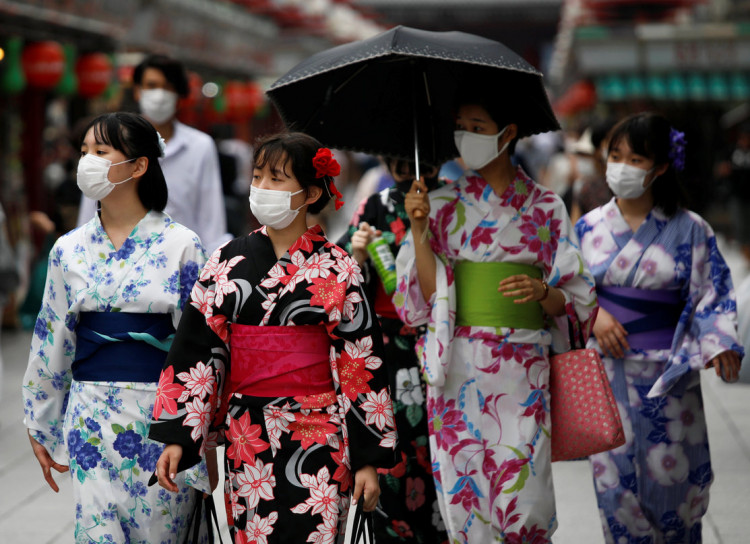Japan has been dealing with a resurgence in new COVID-19 cases throughout the country, with several prefectures outside Tokyo gradually becoming new hot spots.
Japan Reports Record Increase in Daily Cases
On Tuesday, Japan logged a total of 982 new confirmed coronavirus cases, marking the highest single-day increase of new cases in the country since the outbreak started.
Japan now has over 32,000 confirmed cases, including around 700 infections from the Diamond Princess cruise ship that docked at the Yokohama port earlier this year.
The news came following a spike in new cases outside Tokyo, the hard-hit capital that continues to account for most for Japan's daily toll.
Osaka and Aichi Catch Up
While Tokyo has accounted for most of the country's daily cases over the past few weeks, two other prefectures are gradually catching up in new infections and are becoming the new hot spots.
Osaka on Tuesday reported 155 new cases, while Aichi prefecture logged 110 new infections. For Osaka in particular, local health authorities believe the spike was driven largely by small but multiple clusters in nightlife establishments.
There have also been calls to publicly release the names of establishments that are found to have lax anti-coronavirus measures or little to no disinfection protocols.
Defense Minister's Bodyguard Tests Positive
Tuesday was a huge day for Japan as it recorded the highest number of cases since the pandemic started and it was revealed that a bodyguard for the country's defense minister had contracted the disease.
Local police announced on Tuesday that a bodyguard under the Metropolitan Police Department who works for Defense Minister Taro Kono had tested positive of COVID-19.
Kono's tests came out negative, but extra precautions are being taken to ensure that there are no further infections in the minister's department. Three other people who have had close contact with Kono have also tested negative.
Okinawa Tests Hundreds of Japanese Civilian Workers
Meanwhile in Okinawa, the local government tested around a thousand Japanese civilian workers at two United States Marine Corps sites as part of efforts to curb the surge in cases linked to military bases in the prefecture.
Since July 1 through the weekend of July 25, there have been nearly 200 confirmed COVID-19 cases linked to the Marine Corps Air Station Futenma and Camp Hansen.
The surging number of cases at Okinawa's U.S. military bases has prompted widespread testing, as some of the infected patients were family members or contacts of infected military personnel.
Okinawa leaders have expressed concerns about the measures and anti-virus protocols that the U.S. military has taken before allowing military personnel from the United States to travel to the Japanese island.
Calls For State of Emergency To Be Declared
Due to the resurgence of new cases in multiple Japanese prefectures, questions have been raised about whether the government should call once more for a state of emergency to block the second wave.
Health experts have also warned of a steady rise of healthcare providers and institutions getting overwhelmed with the increasing hospitalizations.
Last week, Prime Minister Shinzo Abe said "we're not in a situation that immediately warrants the issuance of a fresh state of emergency declaration." Abe added that the government is carefully monitoring the situation.
Cities have imposed stricter quarantine measures and travel restrictions to prevent further infections but Tokyo has yet to announce whether a nation-wide mandate will be due soon.





